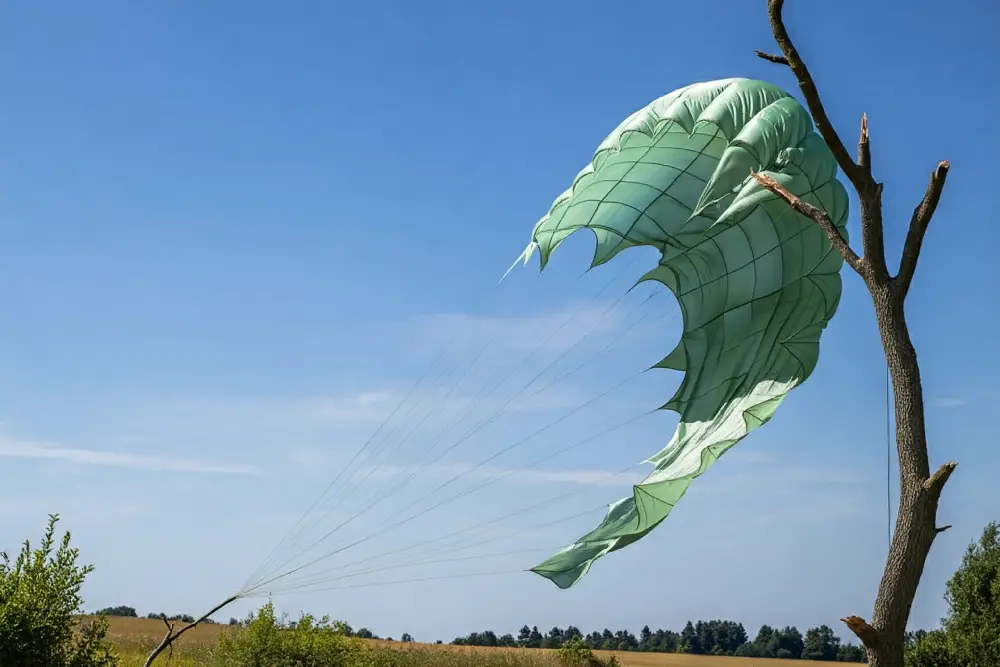Imagine the thrill of skydiving: the rush of adrenaline as you leap from the plane, the feeling of freefall, and the breathtaking views as you glide back to earth. But what happens when something goes wrong? When the parachute malfunctions, or the landing goes awry, the consequences can be devastating.
While skydiving is generally considered a safe activity, accidents do happen. In Louisiana, with its vibrant skydiving community and numerous dropzones, it’s important to understand the risks, the potential causes of accidents, and the legal implications for both skydivers and skydiving operators.
Parachute Accidents in Louisiana: Understanding Liability and Your Rights
The Statistics: Parachute Accidents – Rarer Than You Think
Despite the inherent risks, skydiving is statistically safer than many other activities.
- National Perspective: The United States Parachute Association (USPA) reports that in 2022, there were 10 fatal skydiving accidents in the U.S. out of roughly 3.57 million jumps. This translates to a fatality rate of 0.28 per 100,000 jumps, one of the lowest rates on record.
- Louisiana’s Data: While specific statistics for Louisiana are harder to find, the national data suggests that parachute accidents are relatively rare.
Common Causes of Parachute Accidents
Even with rigorous safety protocols, accidents can occur due to various factors:
- Equipment Malfunction: Parachute malfunctions, while rare, can be caused by manufacturing defects, improper packing, or damage to the equipment.
- Human Error: Skydiver error, such as improper body position during freefall or landing, can lead to accidents.
- Weather Conditions: Sudden changes in wind or weather patterns can create hazardous conditions for skydiving.
- Tandem Jumps: Accidents during tandem jumps, where a novice skydiver is attached to an experienced instructor, can occur due to instructor error or equipment failure.
Liability in Parachute Accidents: Who is Responsible?
Determining liability in a parachute accident can be complex and depends on the specific circumstances. Here are some key considerations:
- Skydiving Operator Negligence: Skydiving operators have a duty to provide safe equipment, properly trained instructors, and adhere to safety regulations. Negligence in any of these areas can lead to liability.
- Product Liability: If a parachute malfunction is caused by a manufacturing defect or design flaw, the manufacturer of the equipment may be held liable.
- Waivers and Assumption of Risk: Skydivers typically sign waivers acknowledging the inherent risks of the activity. However, waivers may not absolve operators of liability for negligence.
- Comparative Negligence: If the skydiver’s own actions contributed to the accident, their compensation may be reduced based on their degree of fault.
What to Do After a Parachute Accident
If you or a loved one has been involved in a parachute accident, it’s crucial to take the following steps:
- Seek medical attention: Even if injuries seem minor, seek immediate medical evaluation. Adrenaline can mask pain, and some injuries may have delayed symptoms.
- Report the accident: Report the incident to the skydiving operator and the Federal Aviation Administration (FAA).
- Preserve evidence: If possible, take photos or videos of the accident scene, the parachute equipment, and any injuries.
- Gather witness information: Obtain contact information from any witnesses who observed the accident.
- Contact an attorney: An experienced personal injury attorney can help you understand your legal rights and options for pursuing a claim.
The Role of an Experienced Attorney
Parachute accident cases often involve complex legal and technical issues. An experienced attorney can:
- Investigate the accident: Thoroughly investigate the accident to determine the cause and identify liable parties.
- Gather evidence: Collect and analyze evidence, including accident reports, witness statements, and expert testimony.
- Negotiate with insurance companies: Advocate for fair compensation on your behalf.
- File a lawsuit: If necessary, file a lawsuit and represent you in court.
Preventing Parachute Accidents: Safety First
While accidents can happen, prioritizing safety can significantly reduce the risks. Here are some key safety measures:
- Choose a reputable skydiving operator: Research the operator’s safety record, experience, and adherence to industry standards.
- Ensure proper equipment maintenance: Regularly inspect and maintain parachute equipment to ensure it’s in good working order.
- Follow safety guidelines: Adhere to all safety instructions provided by the skydiving operator and instructors.
- Undergo proper training: Complete thorough training and certification before attempting a solo jump.
- Be aware of weather conditions: Check weather forecasts and avoid jumping in unsafe conditions.
Beyond Physical Injuries: Addressing Emotional Trauma in Parachute Accidents
Parachute accidents can cause not only physical injuries but also significant emotional trauma, such as post-traumatic stress disorder (PTSD). It’s important to seek professional help for emotional distress and include these damages in your claim for compensation.
Conclusion
Skydiving is an exhilarating activity, but it’s essential to approach it with caution and prioritize safety. If an accident does occur, understanding your legal rights and seeking experienced legal representation can help you navigate the complexities of the claims process and secure the compensation you deserve.





